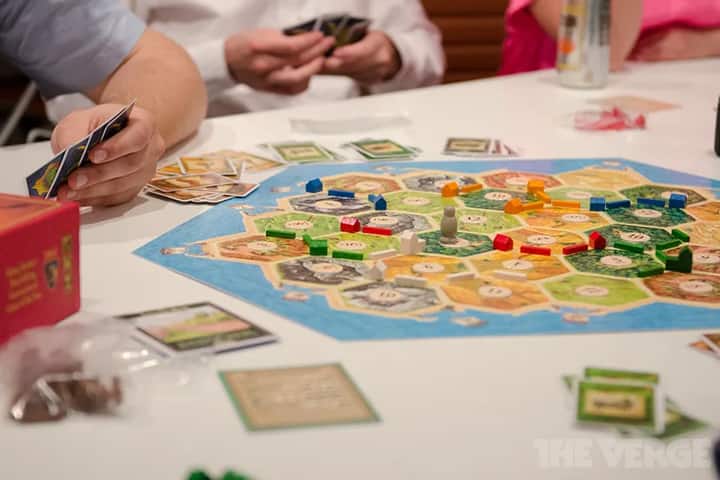

Children who play board games based on numbers make young children better at maths according to researchers (Pic. Courtesy theverge.com)
Researchers found that board games based on numbers, such as Monopoly, Othello, and Chutes and Ladders, make young children better at maths.
Board games have long been known to improve learning and development, particularly reading and literacy. This new study, published in the peer-reviewed journal Early Years, discovers that the format of number-based board games helps three to nine-year-olds improve counting, addition, and the ability to recognise if one number is higher or lower.
According to the researchers, children benefit from programmes – or interventions – in which they play board games a few times per week while being supervised by a teacher or another trained adult.
“Board games enhance mathematical abilities for young children,” said lead author Dr Jaime Balladares, from Pontificia Universidad Catolica de Chile, in Santiago, Chile.
“Using board games can be considered a strategy with potential effects on basic and complex math skills.
“Board games can easily be adapted to include learning objectives related to mathematical skills or other domains.”
Games, where players take turns to move pieces around a board, differ from those involving specific skills or gambling.
Board game rules are fixed which limits a player’s activities, and the moves on the board usually determine the overall playing situation.
However, preschools rarely use board games. This study aimed to compile the available evidence of their effects on children.
The researchers set out to investigate the scale of the effects of physical board games in promoting learning in young children.
They based their findings on a review of 19 studies published from 2000 onwards involving children aged from three to nine years. All except one study focused on the relationship between board games and mathematical skills.
All children participating in the studies received special board game sessions which took place on average twice a week for 20 minutes over one-and-a-half months. Teachers, therapists, or parents were among the adults who led these sessions.
In some of the 19 studies, children were grouped into either the number board game or to a board game that did not focus on numeracy skills. In others, all children participated in number of board games but were allocated different types e.g. Dominoes.
All children were assessed on their math performance before and after the intervention sessions which were designed to encourage skills such as counting out loud.
The authors rated success according to four categories including basic numeric competency such as the ability to name numbers, and basic number comprehension e.g. ‘nine is greater than three’.
The other categories were deepened number comprehension – where a child can accurately add and subtract – and interest in mathematics.
Sometimes, parents attended a training session to learn arithmetic that they could use in the games.
Results showed that math skills improved significantly after the sessions among children for more than half of the tasks analyzed.
In nearly a third of cases, children in the intervention groups gained better results than those who did not take part in the board game intervention.
The results also show that from analyzed studies to date, board games on the language or literacy areas, while implemented, did not include scientific evaluation (i.e. comparing control with intervention groups, or pre and post-intervention) to evaluate their impact on children.
Designing and implementing board games along with scientific procedures to evaluate their efficacy, therefore, are “urgent tasks to develop in the next few years,” Dr Balladares, who was previously at UCL, argued.
Taiwan's military is prioritising combat readiness as a key aspect of deterrence due to escalating…
Calling for an increase in the speed of development, Prime Minister Narendra Modi said on…
The Scottish Government has reaffirmed its commitment to supporting religious freedom and human rights for…
Tara Chand Baloch, the President of the Baloch American Congress and a former Cabinet minister…
In a groundbreaking study, researchers from McGill University have identified nine biological markers in the…
India, in a firm and unequivocal statement at the United Nations Security Council (UNSC), accused…